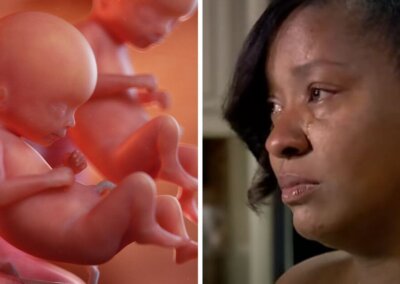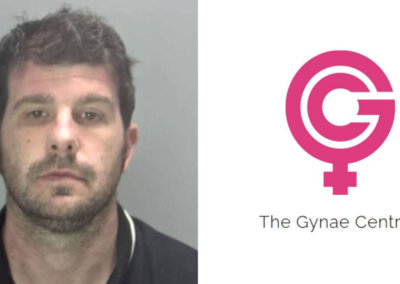A sixteen-year-old girl has described the horror of home abortion after a phone consultation miscalculated her gestation by 12 weeks.
Savannah, not her real name, had a phone consultation with the abortion provider, the British Pregnancy Advisory Service (BPAS) who determined that she was less than 8 weeks pregnant.
When she went to the clinic to collect the abortion pills, the medical professionals did not perform a medical examination or a scan.
After Savannah took both abortion pills at home, she felt “really bad” pain.
“My relative called another ambulance because when I was pushing, my boyfriend could see feet”, she said.
Her son was born alive, with his heart beating and they both had to be taken to hospital. The hospital concluded that Savannah had been between 20 and 21 weeks pregnant.
“If they scanned me and I knew that I was that far gone, then I would have had him”, she said. Savannah said that she had been left traumatised.
When questioned by the BBC, BPAS said it could not comment on individual cases.
At-home abortions are only permitted until 9 weeks and 6 days gestation in England, but the gestation of the baby is hard to determine outside a clinical setting.
‘DIY’ abortions made permanent in English law
This story was released on the same day that MPs voted to allow ‘DIY’ abortions to take place outside of a clinical setting on a permanent basis. Before March 2020, medical abortions were only permitted following a face-to-face consultation with a medical professional. This was both to ascertain the gestation of the baby, thereby preventing complications, and to act as an important safeguard in helping to prevent coercion and abuse.
However, as part of the Government’s pandemic response, abortions were permitted, for the first time, to take place entirely outside of a clinical setting. ‘DIY’ abortions were explicitly introduced on a temporary basis and in February, the Government confirmed that they would come to an end in August this year.
However, Conservative Peer, Baroness Sugg, introduced an amendment to the Government’s Health and Care Bill that sought to overrule the Government’s decision and make the ‘DIY’ abortion scheme permanent. Following it being voted through in the House of Lords, the amendment was passed by the Commons on Wednesday 30 March. A letter, written by Labour’s Shadow Health Secretary, reportedly “encouraged” Labour MPs to support the amendment.
Savannah’s story is not an anomaly
During the debate on whether to make ‘DIY’ at-home abortion a permanent part of the law in England, DUP MP Carla Lockhart MP said: “Savannah’s story should make us all pause and consider what this policy actually means”. She pointed out that instances like this are not “an anomaly”.
Lockhart referenced “a leaked ‘urgent’ email sent by an NHS regional chief midwife [which] quoted the “escalating risk” around at-home abortions and cited ‘the delivery of infants up to 30 weeks gestation’.”
“Similar reports have been made by the body that comprises all senior NHS doctors and nurses who fulfil statutory child safeguarding functions in the NHS, the National Network of Designated Health Care Professionals for Children. Specifically, it has recorded 47 cases of early medical abortions that resulted in mid-to-late pregnancy terminations, across all ages, since the start of the pandemic in March 2020. Six involved girls and in half those cases, and 12 instances in total, there had been signs of life”, she said.
Right To Life UK spokesperson, Catherine Robinson, said: “Predictably, BPAS said they could not comment on the Savannah case. Of course they can’t, as this sad case shows just how dangerous ‘DIY’ abortions are. There is simply no way to accurately determine the age of the baby so complications inevitably occur”.
“Sadly, ‘DIY’ abortions will only lead to more suffering for mothers and their unborn children. Our MPs made an appalling decision based on a careless ideology, not on the evidence of the very real dangers of ‘DIY’ abortions”.












